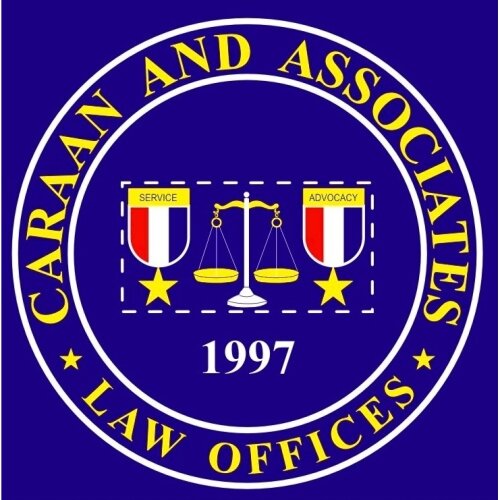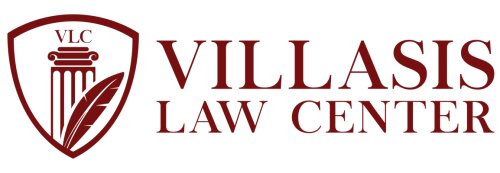Best Collaborative Law Lawyers in Manila
Share your needs with us, get contacted by law firms.
Free. Takes 2 min.
Free Guide to Hiring a Family Lawyer
List of the best lawyers in Manila, Philippines
About Collaborative Law in Manila, Philippines:
Collaborative Law is a practice that aims to settle legal disputes outside of the court system through cooperation and mutual agreement between the parties involved. In Manila, Philippines, Collaborative Law is gaining popularity as an alternative to traditional litigation, offering a more cost-effective and efficient way to resolve disputes.
Why You May Need a Lawyer:
You may need a lawyer specializing in Collaborative Law in Manila, Philippines if you are facing a family law dispute, such as divorce, child custody, or property division, and wish to resolve it through cooperation rather than adversarial litigation. A lawyer can guide you through the process, protect your rights, and help you achieve a fair and mutually beneficial outcome.
Local Laws Overview:
In Manila, Philippines, Collaborative Law is governed by the Family Code, which provides guidelines on marriage, divorce, and child custody. It is essential to understand these laws and how they may impact your case when engaging in Collaborative Law negotiations. Consult with a lawyer who is well-versed in local laws to ensure compliance and a successful resolution.
Frequently Asked Questions:
1. What is Collaborative Law?
Collaborative Law is a legal practice where parties work together with their lawyers to settle disputes outside of court.
2. How is Collaborative Law different from traditional litigation?
Collaborative Law focuses on cooperation and mutual agreement, whereas litigation involves court hearings and adversarial proceedings.
3. Can any legal dispute be resolved through Collaborative Law?
Collaborative Law is commonly used in family law matters such as divorce, child custody, and property division.
4. What are the benefits of Collaborative Law?
Benefits include cost-effectiveness, faster resolutions, and more control over the outcome compared to traditional litigation.
5. How can I find a suitable lawyer for Collaborative Law in Manila, Philippines?
You can seek referrals from friends or family, search online directories, or contact local bar associations for recommendations.
6. How long does Collaborative Law typically take to resolve a dispute?
The timeframe varies depending on the complexity of the case and the willingness of parties to cooperate, but it is generally faster than litigation.
7. What happens if we cannot reach an agreement through Collaborative Law?
If an agreement cannot be reached, the parties will need to pursue other legal options, such as mediation or litigation.
8. Is Collaborative Law legally binding in Manila, Philippines?
Yes, once an agreement is reached in Collaborative Law, it can be formalized and enforced by the court.
9. What are the costs associated with Collaborative Law in Manila, Philippines?
The costs may vary depending on the complexity of the case and the fees of your lawyer, but it is generally more cost-effective than litigation.
10. What are the key elements of a successful Collaborative Law process?
Open communication, mutual respect, and a willingness to compromise are essential for a successful Collaborative Law process.
Additional Resources:
For additional resources on Collaborative Law in Manila, Philippines, you can contact the Collaborative Family Law Association of the Philippines (CFLAP) or the Integrated Bar of the Philippines (IBP) for recommendations and support.
Next Steps:
If you require legal assistance in Collaborative Law in Manila, Philippines, schedule a consultation with a lawyer specializing in this practice area. Be prepared to discuss your case, goals, and concerns to determine the best approach for resolving your dispute through Collaborative Law.
Lawzana helps you find the best lawyers and law firms in Manila through a curated and pre-screened list of qualified legal professionals. Our platform offers rankings and detailed profiles of attorneys and law firms, allowing you to compare based on practice areas, including Collaborative Law, experience, and client feedback.
Each profile includes a description of the firm's areas of practice, client reviews, team members and partners, year of establishment, spoken languages, office locations, contact information, social media presence, and any published articles or resources. Most firms on our platform speak English and are experienced in both local and international legal matters.
Get a quote from top-rated law firms in Manila, Philippines — quickly, securely, and without unnecessary hassle.
Disclaimer:
The information provided on this page is for general informational purposes only and does not constitute legal advice. While we strive to ensure the accuracy and relevance of the content, legal information may change over time, and interpretations of the law can vary. You should always consult with a qualified legal professional for advice specific to your situation.
We disclaim all liability for actions taken or not taken based on the content of this page. If you believe any information is incorrect or outdated, please contact us, and we will review and update it where appropriate.












